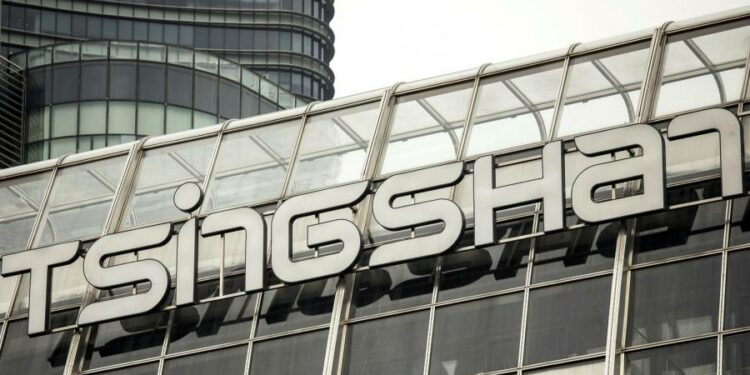Chinese metals group Tsingshan has reached a deal with its bank counterparties to resolve a bet on nickel that plunged the market into turmoil, paving the way for trading to resume on Wednesday at the London Metal Exchange.
Banks including JPMorgan Chase and Standard Chartered have agreed not to close out Tsingshan’s position or make further margin calls — demands for extra cash to cover losses.
The standstill agreement will give the two sides time to hammer out a deal on a new secured credit facility that the world’s biggest stainless steel producer can use for its “nickel margin and settlement requirements”.
In a rare public statement, the privately owned company said an “integral feature” of the agreement was a “provision for the existing hedge positions to be reduced by the Tsingshan Group in a fair and orderly manner as abnormal market conditions subside”.
Several people with knowledge of the discussions said the banking counterparties were prepared to provide a secured credit facility because of the strength of Tsingshan’s business, which will be benefiting from high metal prices. Other banking counterparties to the group’s outsized nickel bet include Chinese lenders ICBC and China Construction Bank.
The London Metal Exchange suspended dealings in nickel last Tuesday and cancelled trades after its benchmark contract doubled to a record above $100,000 a tonne, bringing global trading in the metal to a halt.
Tsingshan was at the centre of a surge in nickel prices after its wager that prices would fall collided with a rally in the metal sparked by the war in Ukraine, forcing it to buy contracts linked to the metal in huge volumes.
The size of the position has not been disclosed but Tsingshan was facing billions of dollars in potential losses when trading was halted, said people with knowledge of the situation. The position was held both on and off the exchange in the over-the-counter (OTC) derivatives market.
The LME plans to resume trading at 8am on Wednesday and will introduce daily price limits for all of its metals including nickel. Members will also be asked to disclose all OTC positions in nickel greater than 100 lots until further notice.
“The LME notes in particular that a large client of the market has now published details relating to the support of a banking consortium, which could suggest that the potential for further disorderly conditions may be mitigated,” the exchange said in a statement.
Nickel is used to make stainless steel but its fastest-growing market is in the batteries that power electric vehicles.
Many small and midsized brokers who act as middlemen for clients trading metal are closely watching Tsingshan’s ability to meet its margin calls. If the company cannot meet these demands and is closed out of its positions, many would also face large margin calls from their banks and the LME that they fear they could not meet.
Tsingshan is controlled by metals tycoon Xiang Guangda. Under his leadership the company has gone from being a small stainless steel producer in the coastal city of Wenzhou in the mid 2000s to be by far the industry’s largest producer.
It is also the world’s biggest producer of nickel pig iron ore — a low-cost alternative to refined nickel — and wants to build a presence in battery-grade nickel.
Xiang started to amass its short position towards the end of last year when prices began to pick up because of demand from carmakers.
Like other commodities, nickel has been roiled by the war in Ukraine with prices rising on fears that supplies from Russia — the world’s biggest producer of high-grade nickel — could be disrupted by western sanctions on Moscow.











